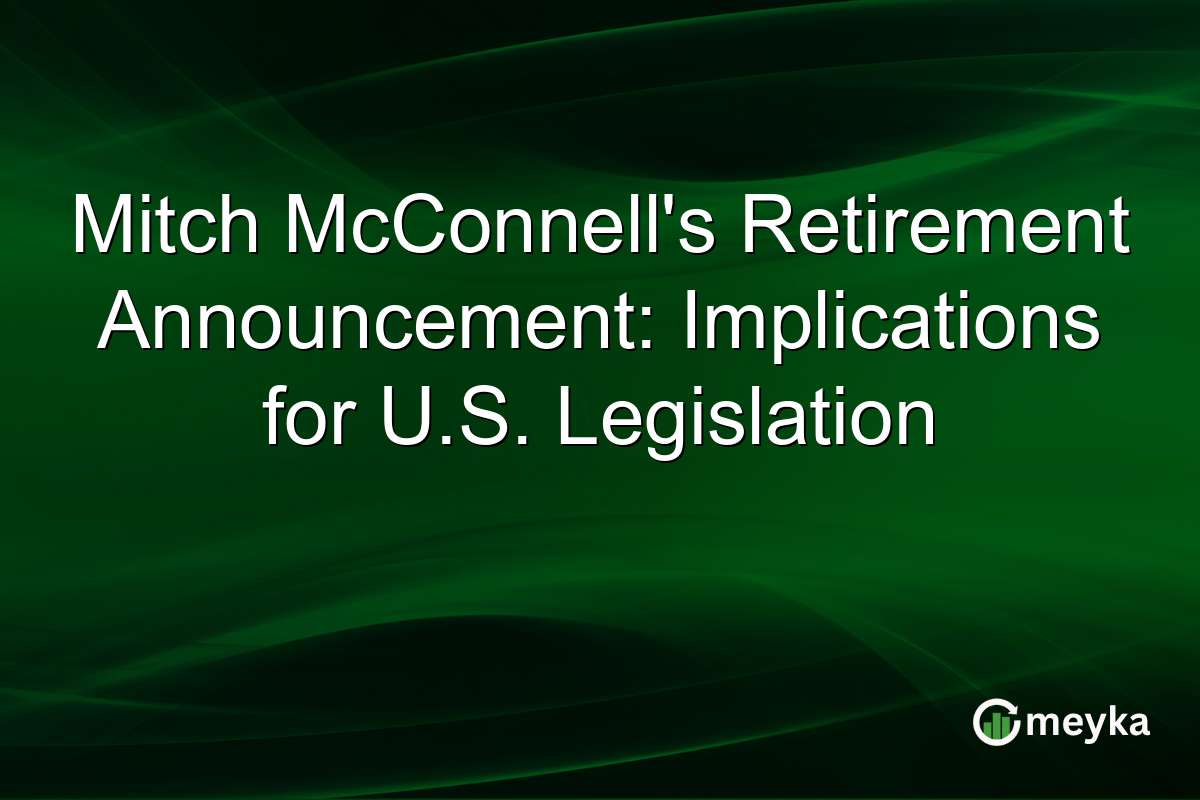Mitch McConnell’s Retirement Announcement: Implications for U.S. Legislation
Senator Mitch McConnell, a pivotal force in U.S. politics, announced his retirement, triggering major shifts in Senate leadership. His departure is poised to significantly affect U.S. legislative processes. As a longtime Senate leader, McConnell’s influence shaped policy decisions and legislative strategies for decades. His absence will create a leadership gap and impact ongoing and future legislative agendas.
Mitch McConnell’s Retirement: A Turning Point
The retirement of Mitch McConnell marks a significant turning point for the U.S. Senate. For decades, he was a key player in shaping Republican strategies and blocking Democratic legislations. His approach to Senate rules and his commitment to conservative values earned him both respect and criticism. McConnell’s departure from the political scene opens the floor for substantial changes in Senate dynamics. New leadership will face the challenge of maintaining party unity while also addressing pressing legislative issues. Read more on CNBC.
Senate Leadership Change: What to Expect
With McConnell stepping down, a reshuffle in Senate leadership is inevitable. The competition is fierce, with several key figures vying for the position. These potential leaders each bring different priorities and strategies, which could alter the direction of legislative activities. Potential successors include current Senate figures who are eager to leave their mark on U.S. policy. The leadership choice will be crucial in determining how effectively the party can push its legislative agenda in the face of a divided government. More details from CBS News.
U.S. Legislative Impact: Near-Term Effects
Mitch McConnell’s retirement will impact U.S. legislation by shifting how bills are introduced and debated. His strategic use of the filibuster and control of Senate proceedings was a defining characteristic of his tenure. The new leadership might either continue his legacy or pursue a different path, which could alter bill progression in the Senate. Key legislative areas such as healthcare, tax reform, and judicial appointments are likely to see shifts in focus or strategy. The extent of these changes depends largely on who succeeds McConnell and how they choose to navigate the complex political landscape.
Final Thoughts
As Mitch McConnell retires, the U.S. Senate enters a period of transition. His absence will inevitably lead to a reconfiguration of leadership and legislative priorities. With potential shifts in Senate tactics and party alignments, the future of U.S. legislation holds uncertainties but also opportunities for new directions. The coming months will reveal how McConnell’s exit reshapes the Senate, influencing everything from policy debates to party strategies. Observing these developments can provide insights into the evolving landscape of American politics.
FAQs
Several senators are poised to contend for the leadership, each bringing unique strategies and priorities. Their leadership could redefine future legislative focuses.
His retirement could lead to new approaches in bill introductions and debates, altering how the Senate manages key issues like healthcare and tax reform.
The new leadership must maintain party unity, navigate a divided government, and effectively push legislative agendas amidst political and public pressures.
Disclaimer:
This is for information only, not financial advice. Always do your research.






